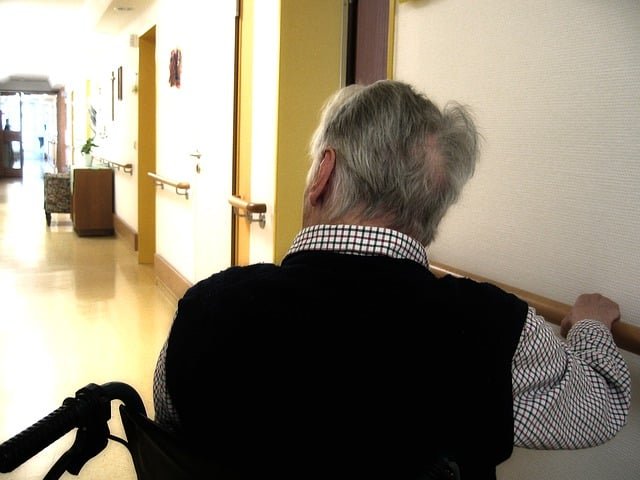An experimental drug from Eli Lilly LLY.N works best if Alzheimer’s patients are treated as early as possible, ideally before they develop symptoms of the brain-wasting disease, researchers said on Monday, in the latest promising development for treating the most common form of dementia.
The drug, donanemab, has been shown to slow progression of memory and thinking problems by about a third, but that rate doubles to 60% if the drug is started when patients are only mildly impaired, according to new trial data presented at the Alzheimer’s Association International Conference in Amsterdam.
The full analysis from the study involving more than 1,700 patients showed that results were less robust for older, later-stage patients as well as those with higher levels of a protein called tau that has been linked to Alzheimer’s disease progression.
The findings underscore that “earlier detection and diagnosis can really change the trajectory of this disease,” said Anne White, president of neuroscience at Lilly.
Lilly expects the US Food and Drug Administration to decide by the end of this year whether to approve donanemab. It said submissions to other global regulators are underway, and most will be completed by year end.
Donanemab, like the recently approved Leqembi from Eisai 4523.T and Biogen BIIB.O, is an intravenous antibody designed to remove deposits of a protein called beta amyloid from the brains of Alzheimer’s patients.
Referring to Lilly’s data released on Monday, Dr Susan Kohlhaas, executive director of research & partnerships at Alzheimer’s Research UK, said, “These results provide further confirmation that removing amyloid from the brain can change the course of Alzheimer’s, and may help people affected by this devastating disease if they’re treated at the right time”.
Lilly’s study showed that brain swelling, a known side effect of amyloid-clearing antibodies, occurred in more than 40% of patients with a genetic predisposition to develop Alzheimer’s.
The company had previously reported that 24% of the overall donanemab treatment group had brain swelling. Brain bleeding occurred in 31% of the donanemab group and about 14% of the placebo group.
The deaths of three trial patients were linked to the treatment, researchers reported.
“These side effects should not be taken lightly,” but most cases were manageable by monitoring with magnetic resonance imaging (MRI) or stopping the drug, said study investigator Dr. Liana Apostolova, professor in Alzheimer’s Disease research at Indiana University School of Medicine.
Doctors are likely to use “very stringent MRI safety screening while we treat these patients,” she said.
Lilly said donanemab’s treatment effect continued to increase relative to placebo over the course of the 18-month trial, even for participants who had been taken off the drug after their levels of amyloid deposits fell significantly.
“At the end of the trial, the average patient had been without drug for seven months and yet they continued to benefit,” White said.
She said the findings support the idea that donanemab can be stopped once amyloid is cleared from the brain.
“Some patients did not worsen significantly during the trial and on average progression of disease was slowed 4.4-7.5 months over 18 months,” said Dr Liz Coulthard, associate professor in dementia neurology at the University of Bristol.
Lilly said in May that the study had met all of its goals, showing that donanemab slowed cognitive decline by 29% compared to a placebo in people with mild cognitive impairment or mild dementia whose brains had deposits of two key Alzheimer’s proteins, beta amyloid, and tau.
For high tau patients, donanemab was shown to slow disease progression by about 17%, while the benefit was 35% for those with low-to-intermediate tau levels.
The full study results were also published in the Journal of the American Medical Association (Jama)
“Whether the harms of these drugs are balanced by their modest clinical benefits will ultimately require more data,” an editorial in Jama alongside the study said.
The FDA this month granted standard approval to Leqembi, the first Alzheimer’s disease-modifying treatment to achieve that goal, clearing the way for wider insurance coverage of the drug.
Both medications are also being studied in large trials to see if they have an impact on delaying onset of Alzheimer’s disease symptoms.
The latest study “gives me great hope” for the outcomes of those prevention trials, said Dr Reisa Sperling, who directs the Center for Alzheimer Research and Treatment at Brigham and Women’s Hospital in Boston.
More than 6 million Americans are living with Alzheimer’s, according to the Alzheimer’s Association. More than 55 million people worldwide have Alzheimer’s or other forms of dementia, according to the World Health Organisation.
Shares of Lilly, which reached an all-time high near $469 in June, were nearly unchanged at $449.98 in midday trading on the New York Stock Exchange.







Click here to change your cookie preferences